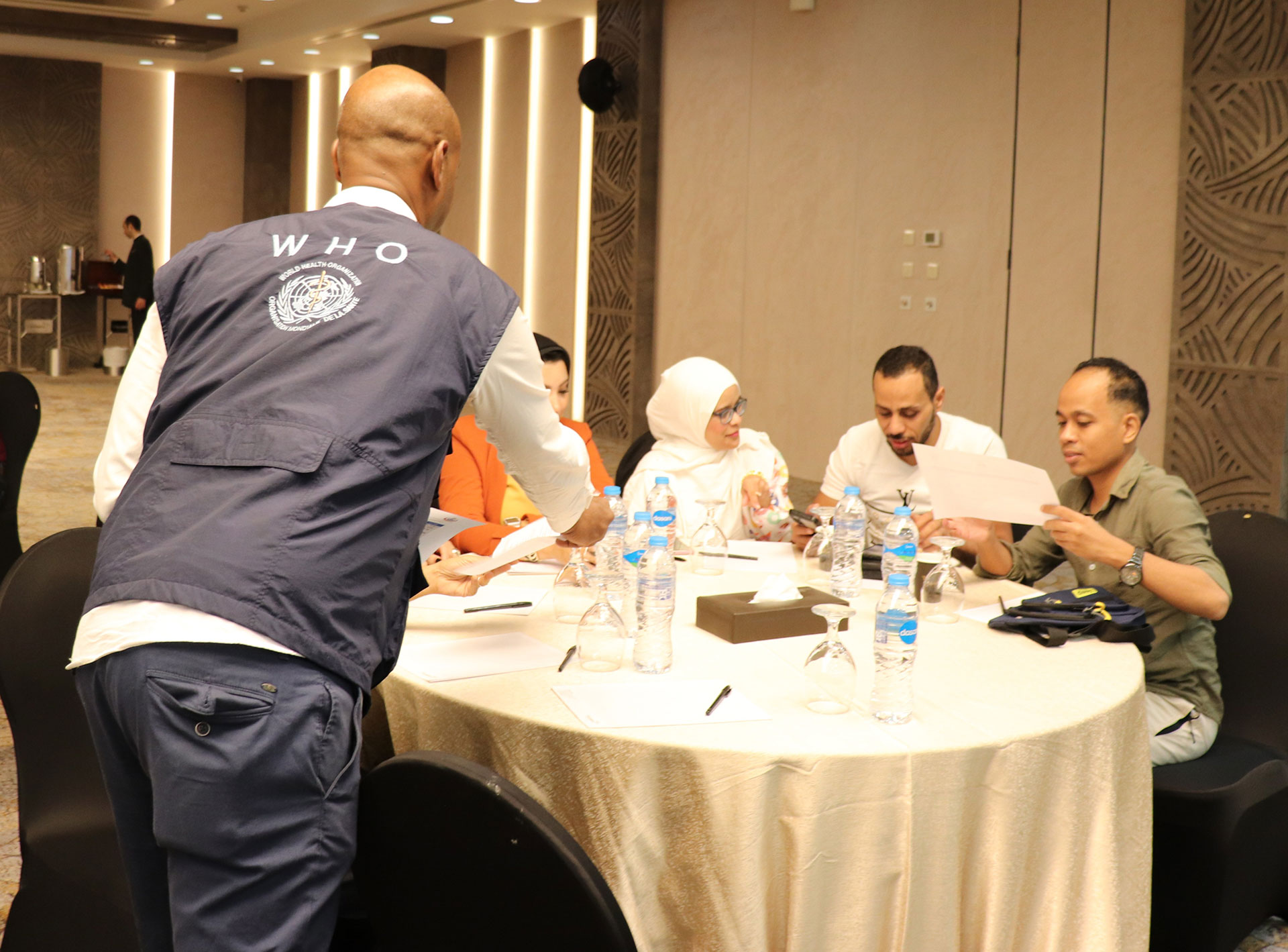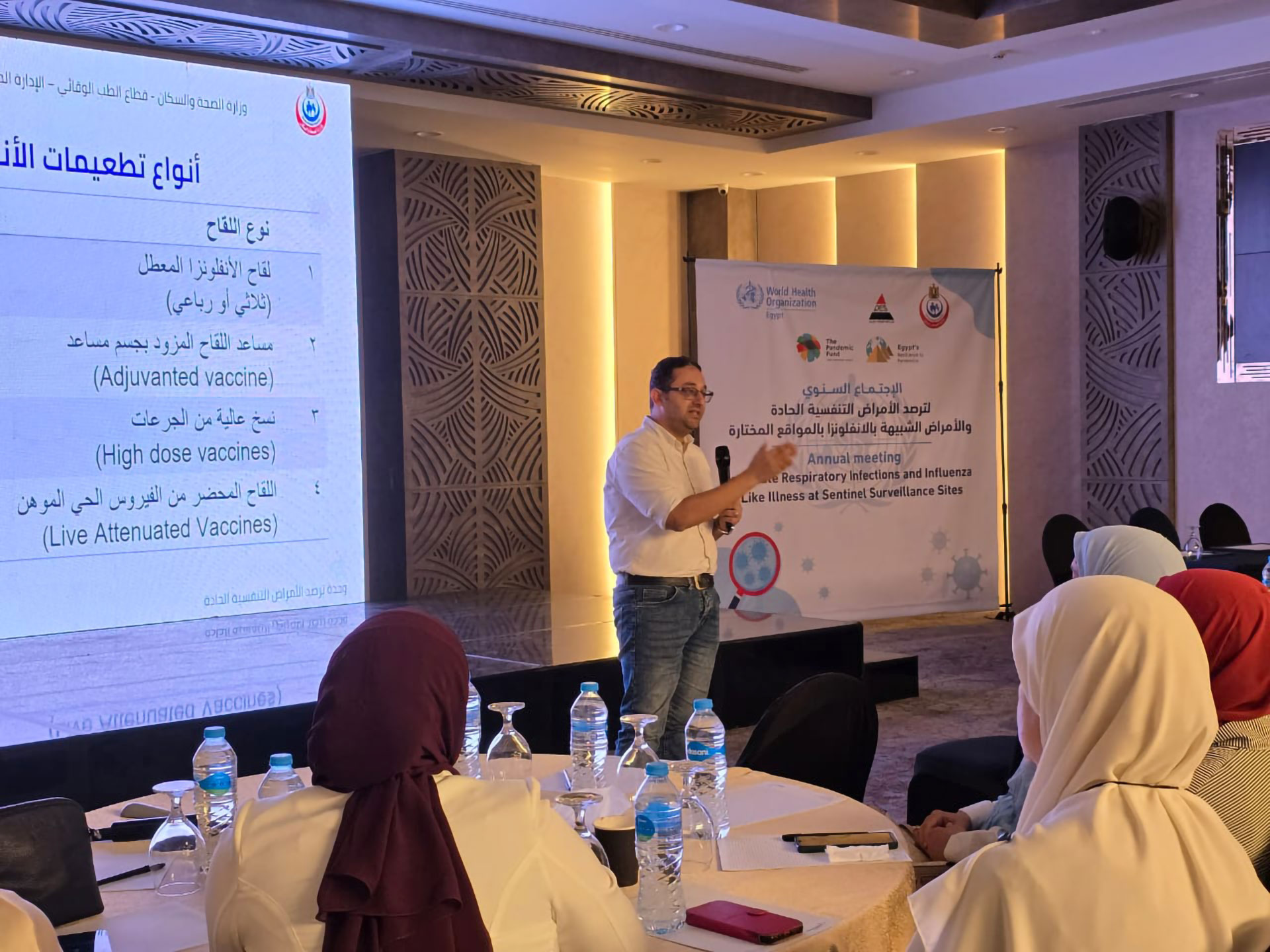 Facilitators discuss preparedness for respiratory disease threats with participants. Photo credit: WHO / WHO Egypt23 November 2025, Cairo, Egypt – The annual meeting and accompanying workshop on integrated surveillance of acute respiratory infections (ARIs), conducted by the Egyptian Ministry of Health and Population in collaboration with the World Health Organization (WHO) Country Office in Egypt, brought together around 270 public health professionals.
Facilitators discuss preparedness for respiratory disease threats with participants. Photo credit: WHO / WHO Egypt23 November 2025, Cairo, Egypt – The annual meeting and accompanying workshop on integrated surveillance of acute respiratory infections (ARIs), conducted by the Egyptian Ministry of Health and Population in collaboration with the World Health Organization (WHO) Country Office in Egypt, brought together around 270 public health professionals.
The participants, all involved in surveillance, included epidemiologists, data officers, physicians, nurses and laboratory specialists drawn from 30 ARI sentinel sites across 15 governorates.
The sessions aimed to strengthen national capacities in disease surveillance for influenza and other respiratory viruses and improve preparedness for respiratory disease threats, particularly those with pandemic potential.
 WHO staff member provides support to participants during the discussions. Photo credit: WHO/WHO EgyptThe discussions covered a wide range of topics, including updates on the global and national epidemiological situation of influenza, COVID-19, avian influenza, Middle East respiratory syndrome coronavirus (MERS-CoV) and zoonotic respiratory infections.
WHO staff member provides support to participants during the discussions. Photo credit: WHO/WHO EgyptThe discussions covered a wide range of topics, including updates on the global and national epidemiological situation of influenza, COVID-19, avian influenza, Middle East respiratory syndrome coronavirus (MERS-CoV) and zoonotic respiratory infections.
Participants reviewed standard operating procedures for ARI and influenza-like illness (ILI) sentinel surveillance and laboratory operations, alongside findings from performance evaluations.
They explored how digital tools and platforms can enhance ARI data quality and timeliness and discussed data reporting through the National Electronic Disease Surveillance System (NEDSS) and the ARI/ILI Power BI dashboard which are used to collect, analyse and visualize respiratory surveillance disease data.
The sessions also covered WHO’s Preparedness and Resilience for Emerging Threats (PRET) framework, an innovative approach designed to improve countries’ pandemic preparedness, emphasizing its alignment with Egypt’s national health security priorities.
 WHO technical officer exchanges experiences with session participants . Photo credit: WHO/WHO EgyptParticipants exchanged experiences, addressed operational challenges and identified ways to strengthen coordination across the surveillance network.
WHO technical officer exchanges experiences with session participants . Photo credit: WHO/WHO EgyptParticipants exchanged experiences, addressed operational challenges and identified ways to strengthen coordination across the surveillance network.
The collaboration underscored Egypt’s commitment to maintaining a responsive, data-driven surveillance system.
With WHO’s continued support, the outcomes of the meeting and workshop will further strengthen surveillance performance, preparedness and health security across Egypt.








